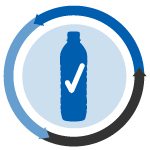 A scientific panel signed off on a slew of PET recycling technologies this year, determining they produce clean RPET that can be used in food and drink packaging.
A scientific panel signed off on a slew of PET recycling technologies this year, determining they produce clean RPET that can be used in food and drink packaging.

 A scientific panel signed off on a slew of PET recycling technologies this year, determining they produce clean RPET that can be used in food and drink packaging.
A scientific panel signed off on a slew of PET recycling technologies this year, determining they produce clean RPET that can be used in food and drink packaging.
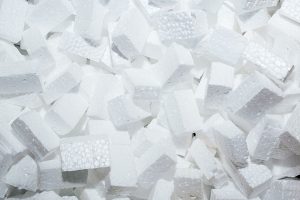 Polystyrene producer INEOS Styrolution has recently partnered with a pair of companies that are developing emerging chemical PS recycling processes. An INEOS executive said the activity is the first step toward what partners hope will be a full-scale polystyrene recycling consortium.
Polystyrene producer INEOS Styrolution has recently partnered with a pair of companies that are developing emerging chemical PS recycling processes. An INEOS executive said the activity is the first step toward what partners hope will be a full-scale polystyrene recycling consortium.
 When it comes to recovering polyester from textiles, chemical recycling technologies might just be what the reclaimer ordered, a new report suggests.
When it comes to recovering polyester from textiles, chemical recycling technologies might just be what the reclaimer ordered, a new report suggests.
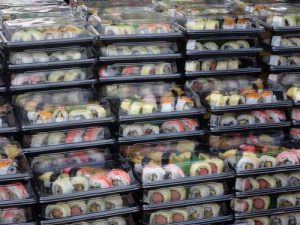 In Europe, thermoform packaging is using more and more RPET content, but impediments remain to efficient recycling of the thermoforms themselves. A workshop recently discussed the issues.
In Europe, thermoform packaging is using more and more RPET content, but impediments remain to efficient recycling of the thermoforms themselves. A workshop recently discussed the issues.
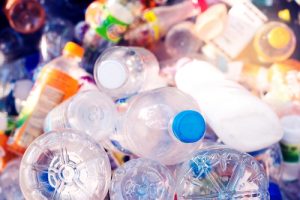 For years, a European Union panel has given its thumbs up to using recycling processes to generate food-contact recycled plastics, but those opinions aren’t official government “approvals.” Some groups say the lack of official authorization from the European Commission has lead to damaging uncertainty for the industry.
For years, a European Union panel has given its thumbs up to using recycling processes to generate food-contact recycled plastics, but those opinions aren’t official government “approvals.” Some groups say the lack of official authorization from the European Commission has lead to damaging uncertainty for the industry.
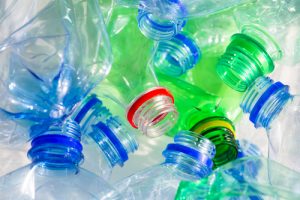 PET depolymerization company Loop Industries has agreed to purchase a 150,000-square-foot site for its first manufacturing facility.
PET depolymerization company Loop Industries has agreed to purchase a 150,000-square-foot site for its first manufacturing facility.
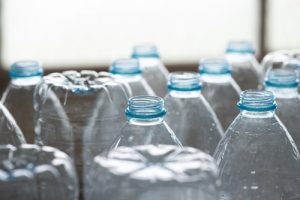 California lawmakers have revised the state’s definition of PET to exclude PETG, meaning products made from the glycol-modified plastic are barred from using resin code No. 1.
California lawmakers have revised the state’s definition of PET to exclude PETG, meaning products made from the glycol-modified plastic are barred from using resin code No. 1.
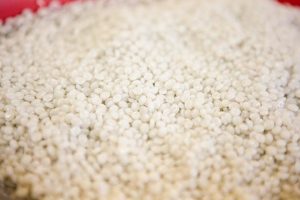 A plastics recycling giant in Alabama will likely be significantly increasing its output of recycled natural HDPE after receiving a letter of no objection (LNO) from the U.S. Food and Drug Administration.
A plastics recycling giant in Alabama will likely be significantly increasing its output of recycled natural HDPE after receiving a letter of no objection (LNO) from the U.S. Food and Drug Administration.
 In Canada, a number of companies are tackling difficult plastic streams without using traditional mechanical recycling processes. One of them, Pyrowave, uses microwaves to depolymerize polystyrene scrap and has recently made some strong steps forward.
In Canada, a number of companies are tackling difficult plastic streams without using traditional mechanical recycling processes. One of them, Pyrowave, uses microwaves to depolymerize polystyrene scrap and has recently made some strong steps forward.
